If you belong to the ‘70s generation or followed Kannada theatre in the ‘80s, then MS Sathyu would need no introduction. If one hand he was winning accolades for his films such as Garam Hava (1974) on the other, he was wowing the theatre audience designing sets for most of the theatre groups. His sets for Nagamandala is considered one of his best.
Name an award and Sathyu has won it. From Garam Hava being nominated for the Palme d’Or at the Cannes Film Festival, to Bara (1982) winning the National Film Award for Best Feature Film in Kannada. Sathyu won the Filmfare Best Art Direction Award for for Chetan Anand’s Haqeeqat (1964), and was conferred with the Padma Shri. The latest accolade for Sathyu is the BIFFES Lifetime Achievement Award 2024. A living legend, Sathyu straddled the worlds of theatre and cinema. A creative factory, Sathyu is considered an institution for students of film and theatre.
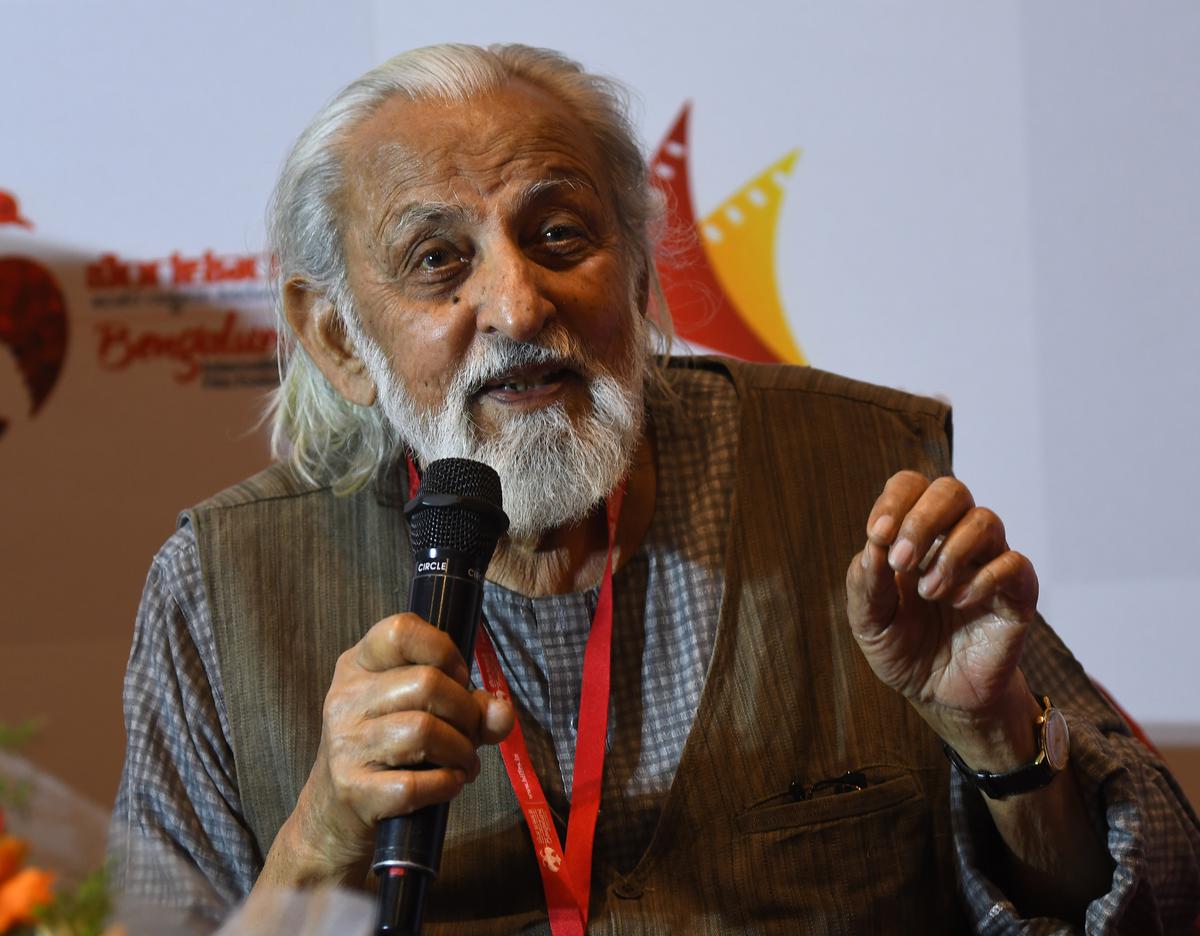
MS Sathyu
| Photo Credit:
SUDHAKARA JAIN
The 93-year-old talks about his passion for theatre, cinema and set design, and Garam Hava, which celebrates it 50th anniversary this year.
Edited excerpts
You worked as an animator, art director and director. Are these disciplines independent of each other or in some way connected?
They are interconnected. Doing all these was a question of getting an opportunity to do something when I was very young. I went to Bombay at the age of 22, hence, whatever opportunity came my way, I accepted it. There was no choice. I was good at drawing and painting, so it was easy for me to learn animation. We had a small studio where we created animation for advertisements for soaps and things like that. That led to something further.
Even today, the emotions related to the Partition are raw. What were your feelings when you made Garam Hava?
I don’t know, because I was not personally involved nor had I experienced the horrors of Partition. I did hear stories from friends who had experienced it, suffered loss and migrated. They spoke of division of the country and destruction. It was these stories that I wanted to show on-screen. Then it is a question of how sincere and honest you are when you are depicting true life stories in cinema so it is not diluted. As a director, the Kannada film Bara is closer to my heart. Yet, people remember only Garam Hava, which at times saddens me. Bara was a difficult film, which was possible only by passion.
When you make a film with political undertones, how easy or difficult is it to ensure your political ideas do not seep into the work?
The leanings and the struggle is always there. I am a Marxist and even today, whatever I do, in theatre or cinema, it reflects in some way or the other in my work. I may not be a member of any political party, but my leanings are expressed in my work.
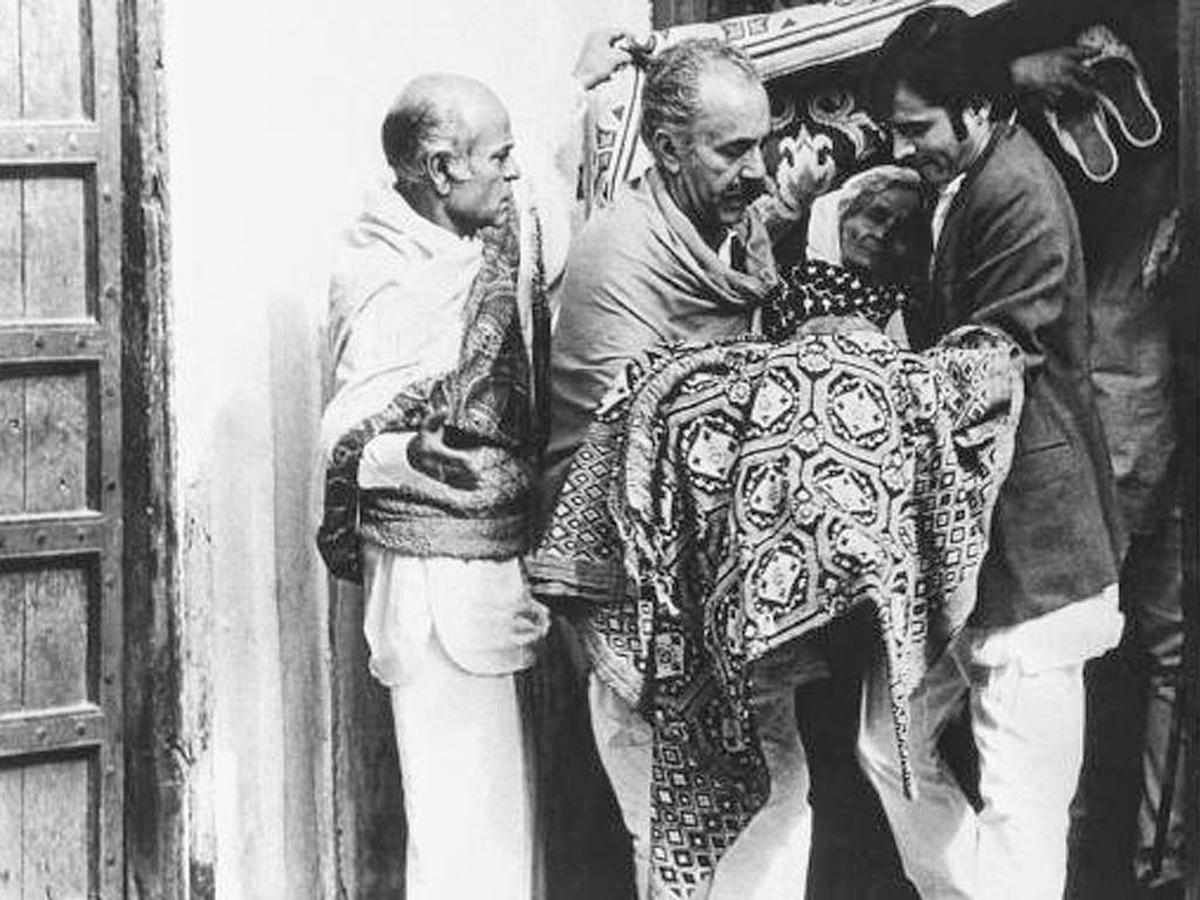
A still from his film Garam Hava
| Photo Credit:
The Hindu Archive
As a director, what do you see has changed in cinema today and what are lacunae?
Cinema has become much more open today. The whole format of a film has changed because of streaming, which has also done a lot of damage to the human psyche. Digital platforms are not good for cinema, but that is the trend today. Most cinema follow a common template. There is a dramatic moment and suddenly there is rain. Why should it rain when it is not the season for rain nor does the script demand it? The pattern has been set by the makers of these films. I find it artificial and in a way it has narrowed the scope of expression.
Art is something that should elevate the human mind. Now the human mind is destroyed, diminished by OTT. It is alright to watch a football or a cricket match on a digital platform, not cinema.
You made nine Hindi films including the iconic Haqeeqat. Yet we did not see you make more films in Mumbai…
It is a question of getting your finances. When you start talks, political ideas can come in the way. It is not always easy. I’ve worked with many stars and introduced many of them. But there is a limit as to how many even know that I introduced Pankaj Kapur, Sharon Prabhakar and Anil Kapoor to Hindi cinema. Anil’s first Hindi film was with me (Kahan Kahan Se Guzar Gaya), though he had done the Telugu film, Vamsha Vriksham by then.
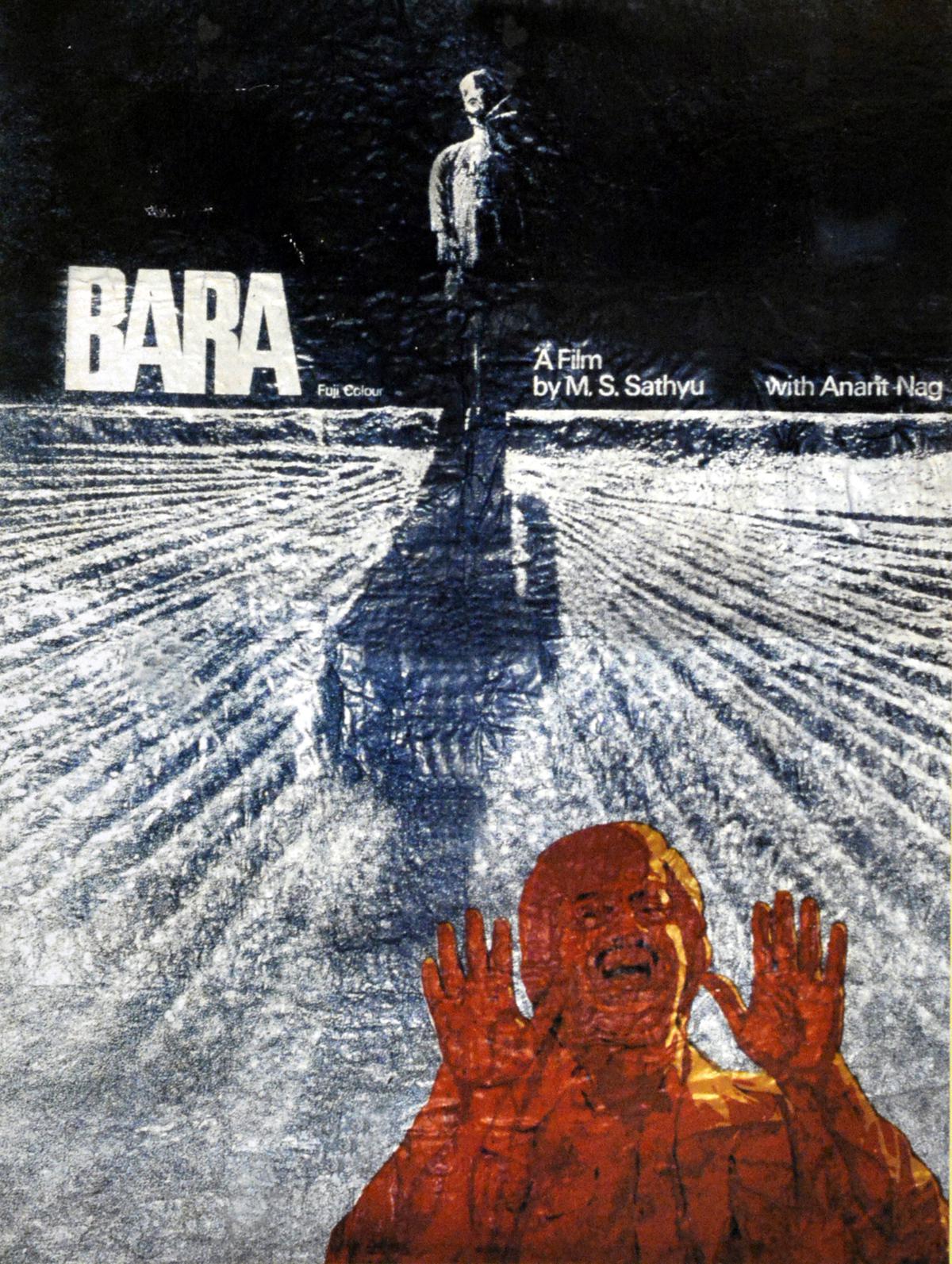
The poster of the Kannada film Bara
| Photo Credit:
K Bhagya Prakash
Your involvement with Indian People’s Theatre Association and designing stage sets till date, shows your passion for this medium. Do you see theatre as a dying art?
Theatre is dying only for some, but is alive as there is a one-to-one relation between the audience and actor which cannot be achieved in cinema. In cinema, you depend on some machine to portray your emotions and connect with the audience. In theatre, it’s a direct connection with a live audience that instantly reacts to your work on stage. I just watched a play, Bendakaluon a toast. It is a concept that can only be done through theatre. Any other form will kill its essence.
What are your thoughts on the BIFFes lifetime achievement award?
It’s a gift. A gift can be small or generous, yet it is a gift. I don’t feel excited about it now. Perhaps, I would have been excited if I was younger, like when I won the Filmfare Award for Haqeeqat
as the art director. It was a set that was created in Ladakh. That experience is more exciting than a lifetime achievement award.
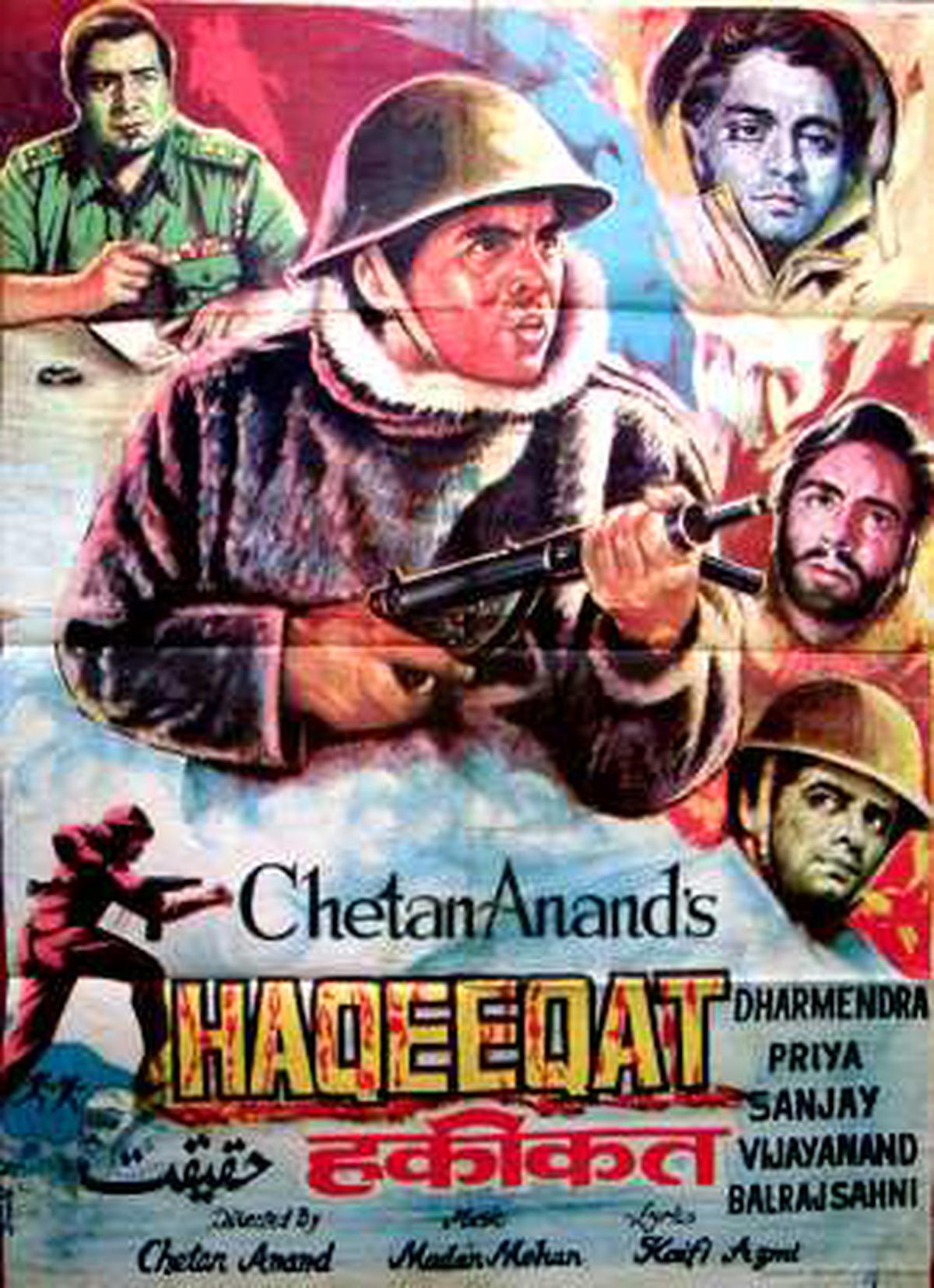
The poster of the film Haqeeqat for which he won the Filmfare Award ib the Best Art Direction category
How did you approach the concept of Haqeeqat as art director?
Every story needs a certain ambience and look. If you are dealing with the Indian Army, then you have to bring in a certain authenticity to the whole thing. Actors have to become soldiers.
They should know how to handle weapons, move through the sand. Ladakh is today exploited for every ad and film. But when Haqeeqat was made in 1963, we had nothing and had to make ourselves a part of the Indian Army. We lived with them and ate like them.
There would be sand in the food and we had no reason to complain. When a soldier, who is protecting your country can eat that, you have no right to grumble. It is your duty to eat the same food and honour him by doing what he does.

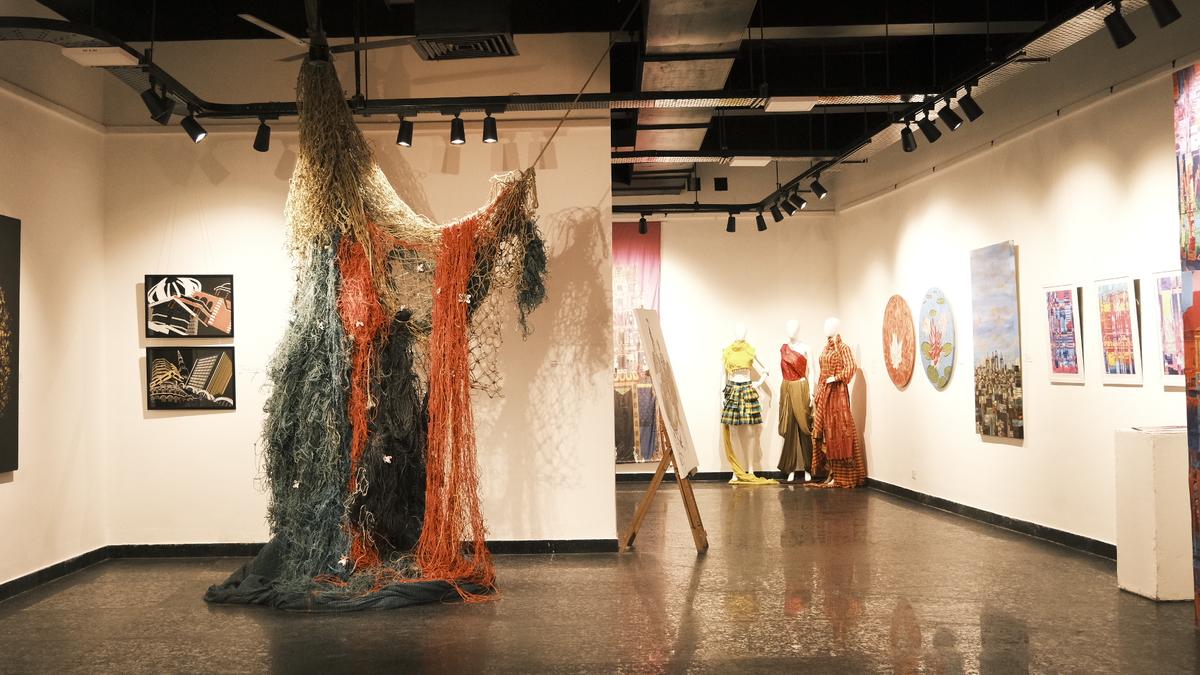
.jpg)